Chimpanzees is the smartest animal in the ranking of the top 5 smartest animals in the world, closely followed by dolphins, crows, orangutans, and octopuses. In this article, we will highlight the top five smartest animals in the world, detailing their lifespan, height, weight, diet, and other fascinating characteristics that set them apart in the animal kingdom.
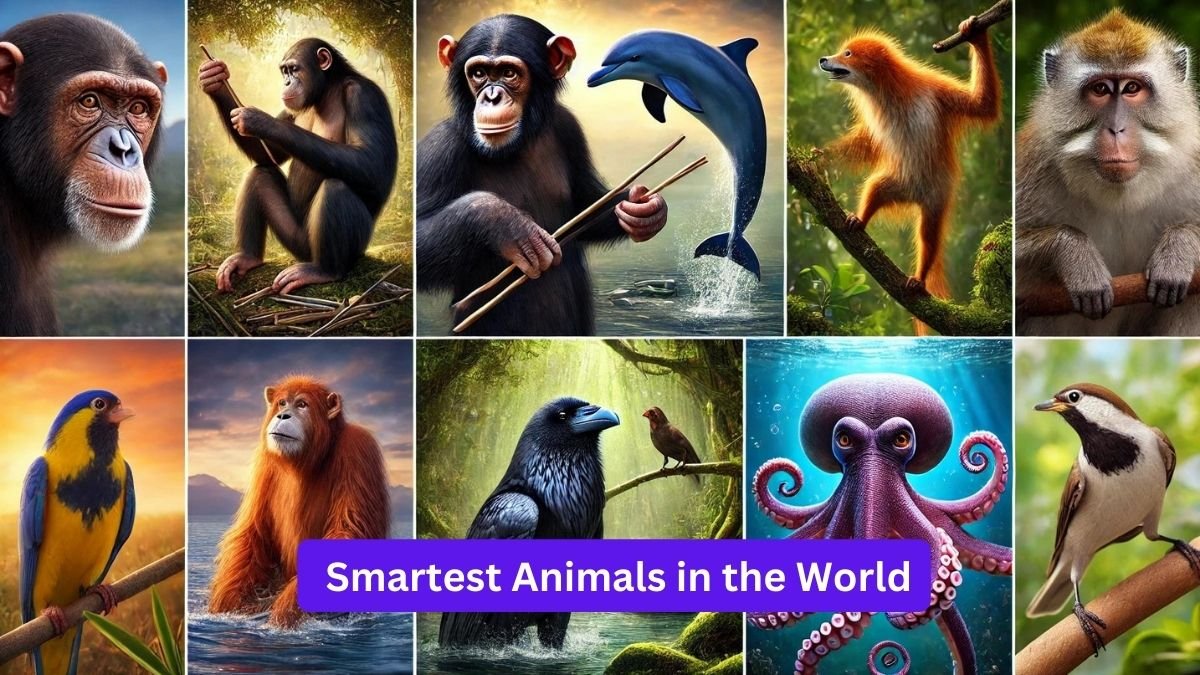
Top 5 Smartest Animals in the World
- Chimpanzees
- Dolphins
- Crows
- Orangutans
- Octopuses
1. Chimpanzees
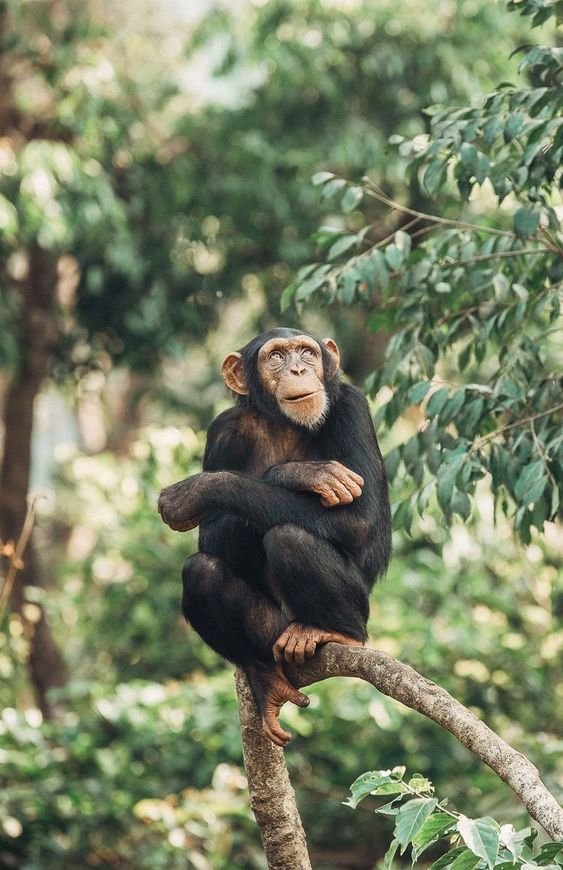
Chimpanzees are widely regarded as one of the most intelligent animals on Earth, primarily due to their close genetic relationship with humans, sharing around 98.7% of the same DNA. Their remarkable cognitive abilities include advanced problem-solving, tool use, and complex social behaviors.
Lifespan- In the wild, chimpanzees typically live for around 40 to 50 years, although in captivity, where they have better access to care and food, some can live beyond 60 years. The oldest recorded chimpanzee is Joao, who lived to be 81 years and 262 days, making him the oldest chimpanzee in history as well as the oldest male chimpanzee ever. The record for the oldest female chimpanzee goes to Little Mama, who reached 80 years and 317 days. Currently, the oldest living female chimpanzee is Susie, who is 70 years and 262 days old.
Height: Adult chimpanzees stand about 4 to 5.5 feet tall when upright. On all fours, they may appear shorter due to their long arms adapted for climbing.
Weight: They typically weigh between 70 to 130 pounds, with males averaging 90 to 130 pounds and females ranging from 70 to 100 pounds, illustrating sexual dimorphism common in primates.
Diet: Chimpanzees are omnivores with a varied diet that includes both plant and animal foods. Fruits, leaves, seeds, and nuts make up most of their diet. Insects are regularly consumed for protein. Occasionally, they hunt small mammals (Meat).
Suitable Environment: Chimpanzees are primarily found in the tropical forests of West and Central Africa. They thrive in a variety of habitats, including: Rainforests, Wooded savannas, Montane forests. These environments provide the necessary resources for their survival, including ample food sources, shelter, and opportunities for social interaction.
Social Structure: Chimpanzees live in complex communities that can range from 20 to over 100 individuals. These communities involve intricate social interactions, including grooming, alliance-building, and cooperative hunting.
2. Dolphins
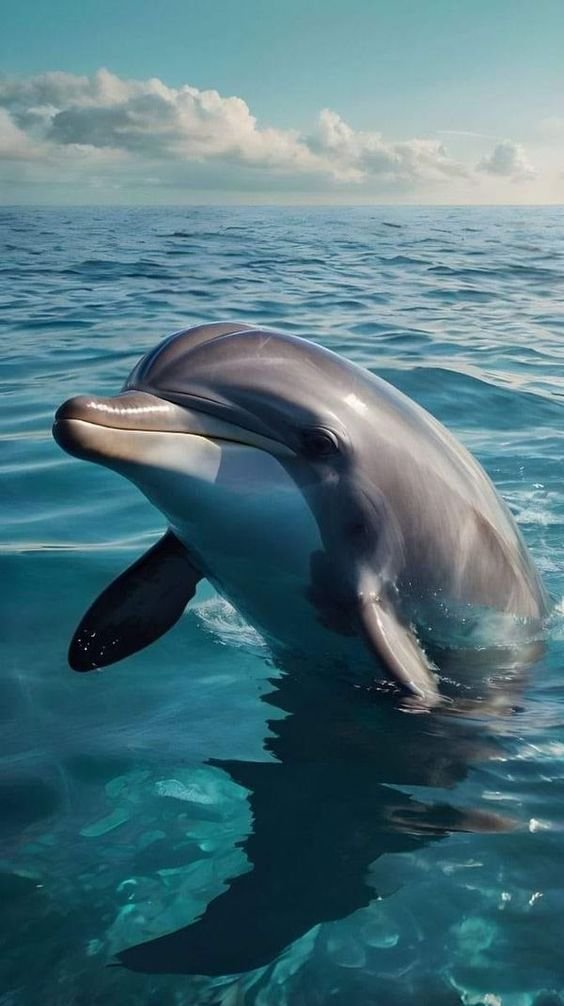
Dolphins are renowned for their intelligence, social behavior, and playful nature. They belong to the family of toothed whales and are closely related to porpoises and orcas. Known for their strong social bonds and communication skills, dolphins are fascinating creatures of the sea.
Lifespan: In the wild, Dolphins generally live for about 20 to 40 years, depending on their species and environment. Dolphins can live beyond 50 years in captivity when provided with appropriate care and attention. The oldest recorded dolphin was Nellie, a bottlenose dolphin, who lived to be 66 years old.
Length: Dolphins range from 2.2 to 2.7 m (7.2 to 8.9 ft.) in length, depending on the species.
Weight: They typically weigh between 300 to 1,400 pounds (136-635 kilos).
Diet: Dolphins are carnivores, and their diet consists mainly of: fish, squid, shrimps, jellyfish and octopuses.
Dolphins prefer warm to temperate waters, typically thriving in temperatures ranging from 60°F to 80°F (15°C to 27°C).
In the ranking of the top 5 smartest animals in the world, dolphins hold the second position as the second smartest animal.
3. Crows
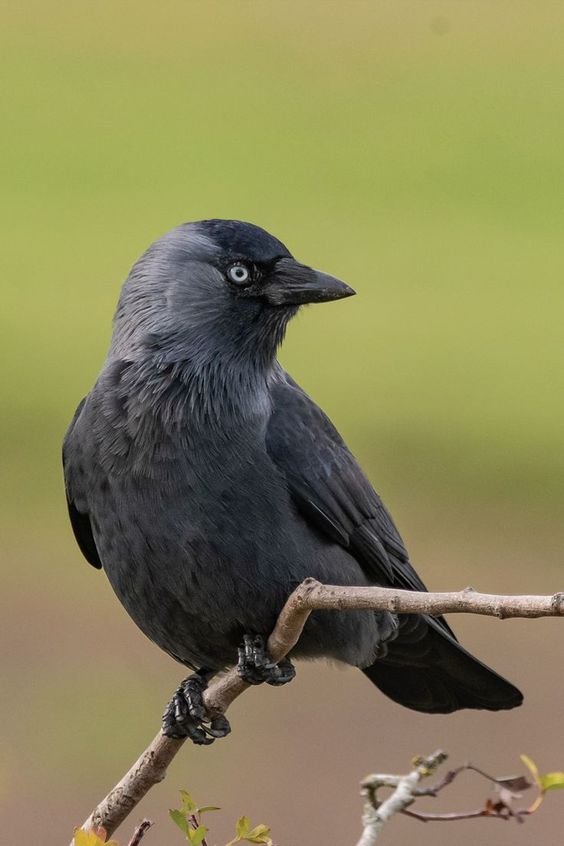
Crows are considered one of the most intelligent animals in the world, particularly among birds. Part of the corvid family, which includes ravens, magpies, and jays, crows demonstrate impressive cognitive abilities, such as problem-solving, tool use, and even the ability to plan for the future.
Lifespan: Crows in the wild generally live for around 7 to 8 years, but with favorable conditions, they can reach up to 10-15 years. In captivity, where threats like predators and disease are minimized, crows can live more than 20 years.
Length: Crows’ length can vary depending on the species. The American crow, for example, measures between 16 to 30 inches (40 to 78 cm) from beak to tail, making them medium-sized birds.
Weight: Crows typically weigh between 11 and 20 ounces (300 to 570 grams), with males often being slightly heavier than females.
Diet: Crows are highly adaptable omnivores, meaning they eat a wide variety of foods Fruits, Insects, Seeds and Nuts, Small Animals, Carrion, Human Waste. This diverse diet allows crows to thrive in a wide range of habitats, from dense forests to busy cities.
In the ranking of the top 5 smartest animals in the world, crows hold the third position as the third smartest animal.
4. Orangutans
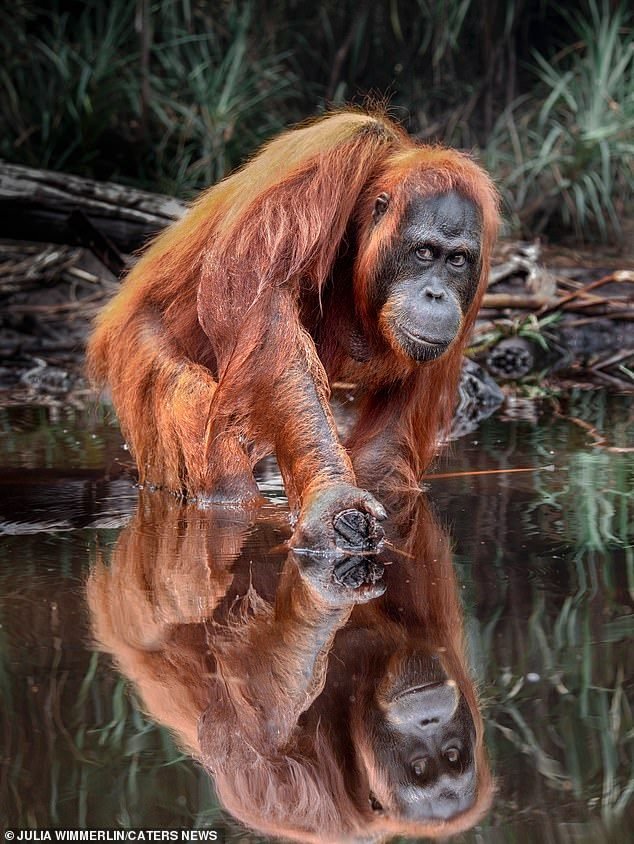
Orangutans, the largest tree-dwelling mammals, are known for their intelligence and close genetic relation to humans. They belong to the great ape family and are native to the rainforests of Borneo and Sumatra. Orangutans demonstrate advanced cognitive abilities, such as tool use, problem-solving, and the capacity for learning and communication through gestures.
Lifespan: In the wild, orangutans typically live for about 30 to 40 years. However, in captivity, where they receive medical care and are free from predators, they can live up to 50 to 60 years.
Length: Orangutans are large primates, with males being significantly bigger than females. Male orangutans measure around 4 to 5 feet (1.2 to 1.5 meters) in height, while females are smaller, typically about 3 to 4 feet (0.9 to 1.2 meters).
Weight: Male orangutans weigh between 110 to 220 pounds (50 to 100 kilograms), whereas females weigh between 66 to 110 pounds (30 to 50 kilograms).
Diet: Orangutans are primarily frugivores, meaning their diet largely consists of fruit. However, they also eat leaves, bark, flowers, insects, and occasionally small animals. This varied diet supports their survival in the dense rainforests where they live.
In the ranking of the top 5 smartest animals in the world, orangutans hold the fourth position as the fourth smartest animal.
5. Octopuses
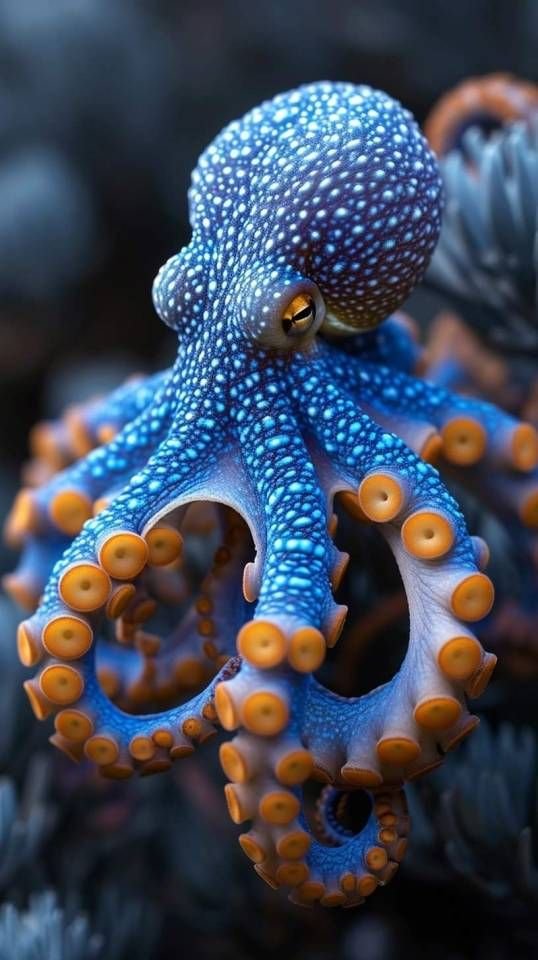
Octopuses are among the most fascinating and intelligent marine creatures, known for their problem-solving abilities, tool use, and remarkable camouflage skills. As members of the cephalopod family, they have complex nervous systems and are highly adaptable to their environment.
Lifespan: Most octopus species have a relatively short lifespan, typically living between 1 to 2 years. However, some species, like the giant Pacific octopus, can live up to 3 to 5 years in the wild. Lifespan can vary depending on factors such as species and environmental conditions.
Length: The size of an octopus can vary greatly depending on the species. For example, the common octopus has an arm span of about 3 to 4 feet (0.9 to 1.2 meters), while the giant Pacific octopus can have an arm span reaching 14 to 16 feet (4.3 to 4.9 meters).
Weight: Most octopuses weigh between 6.6 to 22 pounds (3 to 10 kilograms), though larger species, like the giant Pacific octopus, can weigh up to 150 pounds (68 kilograms).
Diet: Octopuses are carnivorous, primarily feeding on crustaceans like crabs, shrimp, and lobsters, as well as fish and mollusks. They use their sharp beaks to break open shells and are known to use their intelligence and agility to hunt for food.
In the ranking of the top 5 smartest animals in the world, octopuses hold the fifth position as the fifth smartest animal.
Thank you for reading! If you’re interested in more related topics, click here.


